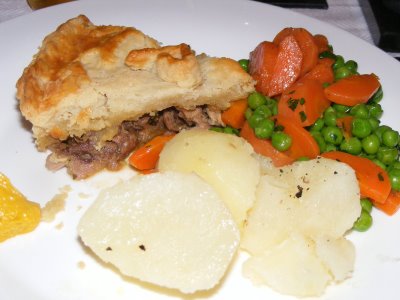A Brit in San Diego might be forgiven for wondering what the sign hung on the children’s theater’s box office actually means. Who will call whom at 5.30? Or is it a note to Will (missing a comma), asking him to call at 5.30? Continue reading
Category Archives: Etymology
How to pronounce “Magdalene” in Britain, and why
*This post has been updated and revised to reflect the many comments suggesting my original post was misinformed.
***
When I’m back in Blighty, I stay at my family home in Magdalen Road in South West London. Try asking a taxi driver to take you to “Maudlin” Road (as the name Magdalen(e) is historically pronounced in the UK), and you’ll probably be met with a blank stare — even by those London cabbies who’ve aced The Knowledge. You are actually more likely to hear that increasingly dated pronunciation when you visit Cambridge, whose Magdalene College sounds more like Maud than Magda. The same is true for its sister college in Oxford — which is spelled nearly the same way but without the final “e”. Which pronunciation — if either — is correct: the “maudlin”-sounding Cambridge and Oxford colleges, or the more modern three-syllable “MAG-duh-lin” that you’ll hear nowadays in most other parts of England? Continue reading
Kycke against the pricke
There’s a scandal involving the disgraced Hollywood producer Harvey Weinstein, and an ensuing discussion about predatory behavior by men in power. Glosso thought it would be interesting to look into “kick against the pricks,” a sadly appropriate expression that’s been cropping up on social media channels in recent days. Is this is a modern turn of phrase? Do people understand what it really means? And when did the word prick first take on its slangy connotations? Glosso investigates … Continue reading
X v Y: Philharmonic or Symphony?
Glosso is devoting September to looking at pairs of words that seem to mean the same thing, but often don’t. Today’s question: are symphony and philharmonic synonymous?
The British “public school”: what does public really mean? Private?
Glosso’s “X v Y” series tackles the complicated matter of British schools: when are they public, and when are they private? Can any actually be both? Continue reading
What’s funky?
Passing through Fulham Broadway Shopping center (in London) recently, I was more than a little surprised to see this juice stall pictured above. “Funky Juice.” It was the American in me that was surprised. Smelly fluids? Rhythmic beverages reminiscent of James Brown and George Clinton? A trendy tasty health drink wasn’t exactly what Funky Juices promised in that moment to me. Continue reading
Is the Cornish pasty really a Devonian pie?
“Controversially, I understand the Cornish pasty may have been invented in Devon.” This explosive statement was made yesterday by Celia Richardson, the director of communications for Historic England. Er – what? Continue reading
Voir dire: to see them say, or to tell the truth?
If you’re an American and you’ve ever served on a jury — or at least been through the jury selection process (as I’ve done in the last couple of days) — you’ll be very familiar with the term voir dire. It’s the name (at least in America) of the process all prospective jurors have to go through to be selected to serve on a particular trial. And the attorneys asking all those probing questions might well explain by way of introduction the origins and meaning of that curious name, voir dire, as a translation of the two modern French verbs: “to see [them] say.” At which point, you might as a prospective juror want to jump up from your seat and shout “Objection!” (Or you might not, since you probably don’t want to be rejected from the jury for being a jerk.) Continue reading
Low tea or high tea? Know your teas … (on National Tea Day)
I rarely hear the expression “low tea” any more. But if I do, I’m transported back to a specific time every weekday afternoon at my boarding school in the English countryside when we would sip warm tea and dip our dry Rich Tea biscuits (and occasionally cake, if we were lucky) into our cups at the end of a long school day. Low tea was, for many, the high point of the day; long were the minutes spent waiting in class for the school bell to ring out, heralding the arrival of caffeine-and-sugar-time. “High tea” was a different story, and came a couple of hours later.
On British National Tea Day, let’s look at the origin and history (and widespread misunderstanding) of the terms “low tea” and “high tea”, and find out just what is eaten at what time on each occasion, and where the names came from. Was it the tides, the time of day, or something to do with the quality or class of the food prepared? Continue reading
It’s 4/20: do you know where your children are?
Originally posted on 4/20 five years ago. And still relevant today …
“420”. Or more specifically: “Four Twenty”. What does that mean to you? For me, I’m transported back to a special time each weekday afternoon at my boarding school in the English countryside when we would sip warm tea and dip our dry Rich Tea biscuits (and occasionally cake, if we were lucky) into our cups at the end of a long school day. Low tea was, for many, the high point of the day; long were the minutes spent waiting in class for the school bell to ring out, heralding the arrival of caffeine-and-sugar-time. In those days, 4.20 meant simply a number or time of day, and it was low-time. Its ‘higher’ connotations had yet to spread beyond the drug culture of Californian youth …
Let’s go 420, and explore the origin and history (and the truths and myths) of the term. Continue reading











